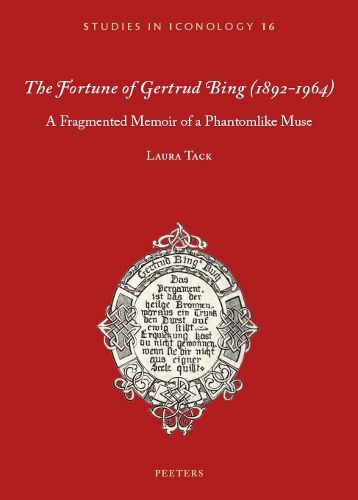Readings Newsletter
Become a Readings Member to make your shopping experience even easier.
Sign in or sign up for free!
You’re not far away from qualifying for FREE standard shipping within Australia
You’ve qualified for FREE standard shipping within Australia
The cart is loading…






Sie stand anderen zur Seite und wusste sie zu inspirieren. It is
clear that Ernst H. Gombrich saw Gertrud Bing (1892-1964) as the muse in
the circle of scholars around Aby M. Warburg (1866-1929). Others have
compared her to the figure of the nymph, which was essential to
Warburg’s thought. Indeed, with Warburg’s fascination for the ninfa
fiorentina, a picturing of ‘the feminine’ enters into the centre of
his thinking. However, Warburg almost never voiced opinions about the
role of gender in the structure of society. Nor does it seem that he
actually admitted women to his intellectual universe. Gertrud Bing, it
turns out, was the rare exception.
Who was Gertrud Bing and what was her personal contribution to Warburg’s
scientific project? This essay intends to map the agency of Gertrud
Bing, in a way that she herself would have probably preferred. According
to her, the ideal biography ought to merge the personal with the
intellectual, since, what one experiences as a human being will also
find its way into the academic oeuvre one leaves behind.
$9.00 standard shipping within Australia
FREE standard shipping within Australia for orders over $100.00
Express & International shipping calculated at checkout
Sie stand anderen zur Seite und wusste sie zu inspirieren. It is
clear that Ernst H. Gombrich saw Gertrud Bing (1892-1964) as the muse in
the circle of scholars around Aby M. Warburg (1866-1929). Others have
compared her to the figure of the nymph, which was essential to
Warburg’s thought. Indeed, with Warburg’s fascination for the ninfa
fiorentina, a picturing of ‘the feminine’ enters into the centre of
his thinking. However, Warburg almost never voiced opinions about the
role of gender in the structure of society. Nor does it seem that he
actually admitted women to his intellectual universe. Gertrud Bing, it
turns out, was the rare exception.
Who was Gertrud Bing and what was her personal contribution to Warburg’s
scientific project? This essay intends to map the agency of Gertrud
Bing, in a way that she herself would have probably preferred. According
to her, the ideal biography ought to merge the personal with the
intellectual, since, what one experiences as a human being will also
find its way into the academic oeuvre one leaves behind.